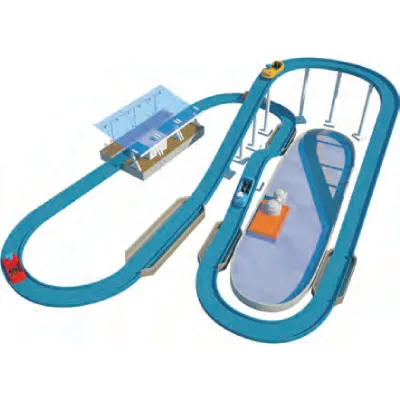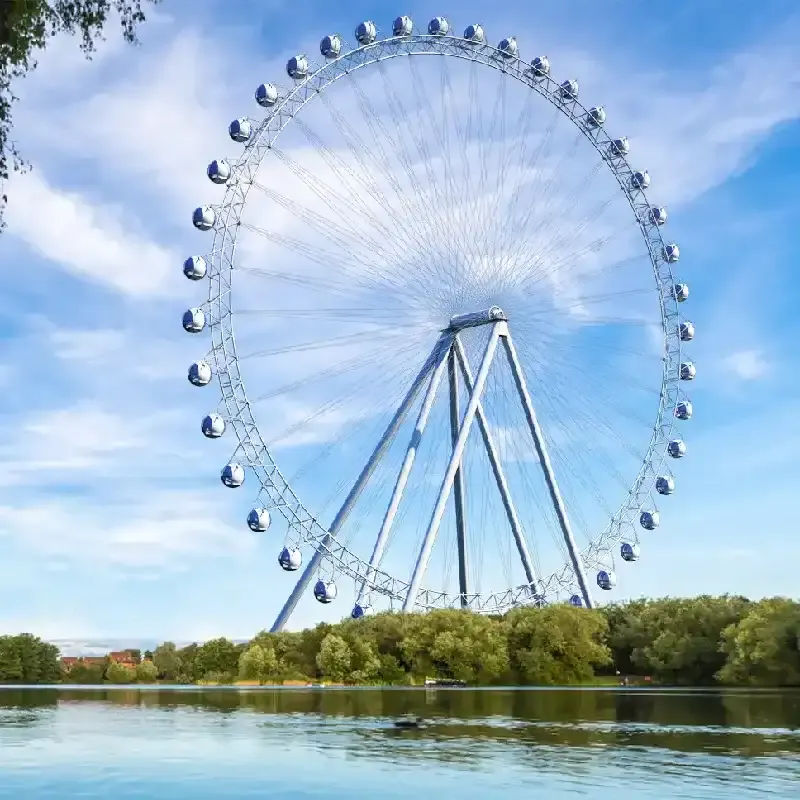2 月 . 14, 2025 15:48
Back to list
fairground carousel for sale
Exploring the world of fairground carousels can be an enchanting journey, as these magical rotating platforms have captivated audiences for centuries. For those considering purchasing a fairground carousel, whether for personal enjoyment or as a business venture, understanding the intricacies of such a unique investment is crucial. Let's delve into what makes fairground carousels such a fascinating opportunity and what potential buyers should consider before making a purchase.
Furthermore, the location where the carousel will be installed plays a significant role in its success. Whether it's planted in a bustling amusement park, a tranquil park setting, or a private estate, understanding the target audience and aligning with local regulations and zoning laws is essential. Proper placement can enhance the attraction’s visibility and profitability, drawing in families, tourists, and nostalgia-seekers alike. Financial considerations are equally important. Owning a fairground carousel is a significant investment, and it’s crucial to evaluate the potential return it can bring. This involves assessing market trends, competitive analyses, and potential operational costs. While the upfront cost can be significant, the long-term gains, including ticket sales, event hosting, or even leasing the carousel for special occasions, can offer substantial returns. Trustworthiness and reliability also play pivotal roles in the purchasing process. Sourcing a carousel from reputable sellers who provide comprehensive information, warranties, and support is vital. These sellers often have extensive knowledge and experience, assisting buyers in selecting a carousel that fits their needs and ensuring a smooth transition from purchase to operation. In summary, acquiring a fairground carousel is about more than just the ride itself; it encompasses a rich blend of history, art, and industry knowledge. The process demands a blend of respect for traditional craftsmanship and an understanding of modern amusement industry standards. By prioritizing authenticity, expert maintenance, strategic placement, and financial foresight, buyers can transform a carousel from a mere amusement into a cherished landmark and a lucrative investment. With the right approach, owning a fairground carousel can be a rewarding and joyful endeavor, unfolding a world of wonder and nostalgia for generations to come.


Furthermore, the location where the carousel will be installed plays a significant role in its success. Whether it's planted in a bustling amusement park, a tranquil park setting, or a private estate, understanding the target audience and aligning with local regulations and zoning laws is essential. Proper placement can enhance the attraction’s visibility and profitability, drawing in families, tourists, and nostalgia-seekers alike. Financial considerations are equally important. Owning a fairground carousel is a significant investment, and it’s crucial to evaluate the potential return it can bring. This involves assessing market trends, competitive analyses, and potential operational costs. While the upfront cost can be significant, the long-term gains, including ticket sales, event hosting, or even leasing the carousel for special occasions, can offer substantial returns. Trustworthiness and reliability also play pivotal roles in the purchasing process. Sourcing a carousel from reputable sellers who provide comprehensive information, warranties, and support is vital. These sellers often have extensive knowledge and experience, assisting buyers in selecting a carousel that fits their needs and ensuring a smooth transition from purchase to operation. In summary, acquiring a fairground carousel is about more than just the ride itself; it encompasses a rich blend of history, art, and industry knowledge. The process demands a blend of respect for traditional craftsmanship and an understanding of modern amusement industry standards. By prioritizing authenticity, expert maintenance, strategic placement, and financial foresight, buyers can transform a carousel from a mere amusement into a cherished landmark and a lucrative investment. With the right approach, owning a fairground carousel can be a rewarding and joyful endeavor, unfolding a world of wonder and nostalgia for generations to come.
Next:
Latest news
-
Top Amusement Equipment Manufacturer Rock n Roller Coaster & Carousel ManufacturerJun.10,2025
-
World's Scariest Roller Coaster Experience Ultimate Thrill & HeightJun.10,2025
-
Ultimate Thrill Ride Roller Coaster High-Speed, Safe AdventureMay.30,2025
-
Carousel Mansfield Rides Premium Indoor & Event SolutionsMay.30,2025
-
T3 Roller Coaster High-Thrill, Safe Ride for Theme Parks & ResortsMay.30,2025
-
Roller Coaster Cart Design Custom-Built & High-Safety Thrill Ride VehiclesMay.30,2025
